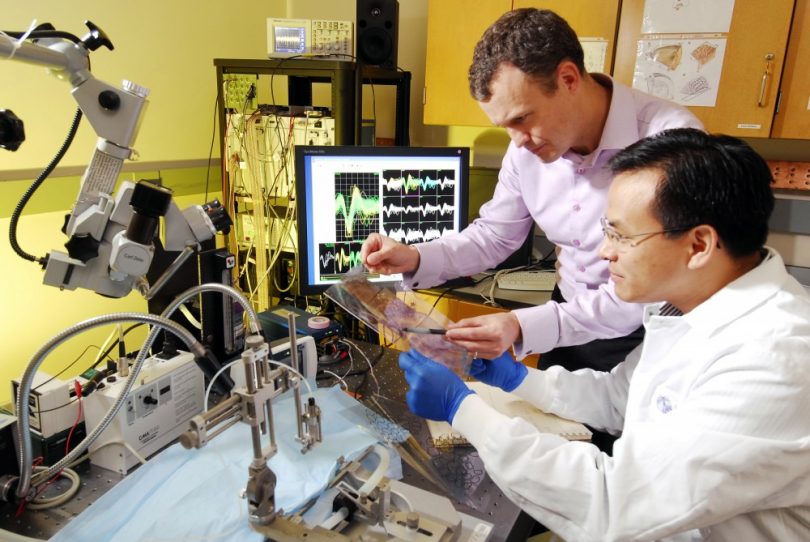Table of Contents
1. Introduction to Biomedical Engineering
Biomedical engineering involves the application of engineering principles to design and develop medical equipment, devices, and procedures that improve the quality of healthcare. It encompasses a wide range of disciplines, including biology, electronics, mechanics, and materials science.
2. Educational Requirements for Biomedical Engineering
To embark on a career in biomedical engineering, a strong educational foundation is crucial.
– Bachelor’s Degree in Biomedical Engineering
The first step is to pursue a Bachelor’s degree in Biomedical Engineering from a reputable university or college. The program typically covers subjects such as physiology, medical instrumentation, biomaterials, and signal processing.
– Master’s Degree and Specializations
While a Bachelor’s degree lays the groundwork, a Master’s degree provides deeper insights and specialization opportunities. Pursuing a Master’s in Biomedical Engineering allows you to focus on areas like biomechanics, medical imaging, or tissue engineering.
3. Gaining Practical Experience
Apart from academic qualifications, gaining practical experience is essential for a successful career in biomedical engineering.
– Internships and Co-op Programs
Participating in internships or co-op programs with biomedical companies or research institutions gives you hands-on experience and exposure to real-world projects.
– Research Projects and Volunteering
Engaging in research projects and volunteering in medical-related initiatives allows you to apply your knowledge to solve real healthcare challenges.
4. Acquiring Relevant Skills
In addition to formal education, acquiring specific skills is vital for excelling in biomedical engineering.
– Analytical and Problem-Solving Skills
Biomedical engineers must analyze complex data and devise innovative solutions to medical problems.
– Technical Skills and Proficiency with Tools
Proficiency in using various software and tools for medical device design and analysis is crucial.
– Communication and Collaboration Skills
Biomedical engineers often collaborate with medical professionals and other engineers, necessitating effective communication skills.
5. Importance of Networking
Building a strong network is beneficial for career growth and opportunities in biomedical engineering.
– Joining Professional Organizations
Joining industry-related organizations and societies allows you to connect with like-minded professionals and stay updated on the latest advancements.
– Attending Conferences and Workshops
Attending conferences and workshops provides insights into cutting-edge research and developments in the field.
– Building Industry Connections
Cultivating relationships with professionals in the industry can lead to potential job openings and career advancements.
6. Job Opportunities in Biomedical Engineering
Biomedical engineers have diverse career opportunities in various sectors.
– Medical Device Industry
Working with medical device manufacturers involves designing and testing medical equipment.
– Hospitals and Healthcare Institutions
Biomedical engineers contribute to the maintenance and improvement of medical equipment in healthcare facilities.
– Research and Academia
Engaging in research or academia allows biomedical engineers to push the boundaries of medical science.
7. Navigating Job Applications
When applying for biomedical engineering positions, certain strategies can enhance your chances of success.
– Building a Strong Resume
Highlighting your academic achievements, practical experience, and relevant skills in your resume is crucial.
– Crafting an Impressive Cover Letter
A well-crafted cover letter should emphasize your passion for biomedical engineering and how you can contribute to the organization.
– Preparing for Interviews
Thoroughly preparing for interviews showcases your commitment and knowledge in the field.
8. Overcoming Challenges in Biomedical Engineering
Biomedical engineering comes with its share of challenges that engineers must address.
– Regulatory Compliance
Adhering to strict regulations and quality standards is essential in medical device development.
– Ethical Considerations
Biomedical engineers must consider ethical implications while working on projects that impact human health.
– Technological Advancements
Staying updated with technological advancements is necessary to remain competitive in the field.
9. Advancement and Career Growth
To advance in the field of biomedical engineering, continuous learning and specialization are vital.
– Pursuing Higher Education
Pursuing a Ph.D. or higher degrees can open doors to research-oriented and leadership roles.
– Specialization and Certifications
Obtaining specialized certifications can demonstrate expertise in specific areas of biomedical engineering.
10. Future Prospects of Biomedical Engineering in India
The future of biomedical engineering in India looks promising, with increasing investments in healthcare and medical research.
Conclusion
Becoming a biomedical engineer in India requires dedication, a strong educational background, and relevant skills. By gaining practical experience, building a strong network, and staying updated with the latest advancements, you can embark on a rewarding career that contributes to the advancement of healthcare.
FAQs
Q1: Is a Master’s degree necessary to become a biomedical engineer?
A1: While a Bachelor’s degree is the minimum requirement, a Master’s degree provides deeper knowledge and specialization opportunities.
Q2: Are internships essential for a biomedical engineering career?
A2: Yes, internships offer practical experience and exposure to real-world projects, enhancing your employability.
Q3: Can I work in both the medical and engineering fields as a biomedical engineer?
A3: Yes, biomedical engineers have job opportunities in medical device companies, hospitals, and research institutions.
Q4: How can networking benefit my biomedical engineering career?
A4: Networking helps in discovering job opportunities, staying updated with industry trends, and building valuable connections.
Q5: What are the future prospects of biomedical engineering in India?
A5: The field is rapidly growing in India, with increased investments in healthcare, research, and development.




